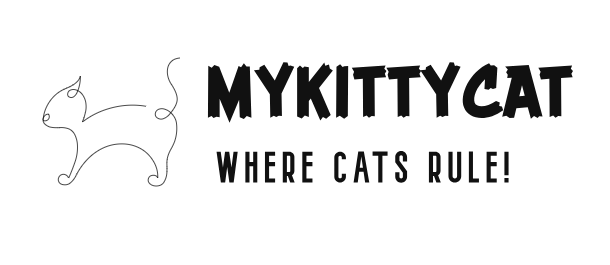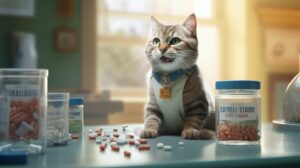As cat owners, we want to ensure that our furry friends are healthy and happy. One way to do this is by getting them vaccinated. Vaccinations are an important part of preventative care for cats, as they protect them against diseases that can be harmful or even fatal. However, it’s important to understand that vaccinations can also have an impact on a cat’s behavior.
After vaccination, some cats may exhibit changes in their behavior. This can include lethargy, loss of appetite, and even a change in personality. While these changes are usually temporary and will resolve on their own, it’s important to observe your cat closely and take steps to manage their behavior post-vaccination. In this article, we’ll explore the topic of cat behavior after vaccination, including what to expect and how to help your cat through any changes they may experience.
Key Takeaways
- Vaccinations are an important part of preventative care for cats, but they can also impact a cat’s behavior.
- Changes in behavior after vaccination can include lethargy, loss of appetite, and personality changes.
- Observing your cat closely and taking steps to manage their behavior post-vaccination can help ensure that they remain healthy and happy.
Related Posts:
Understanding Vaccination
As responsible cat owners, we know that vaccination is important for the health and well-being of our furry friends. In this section, we will discuss the importance of vaccination and the different types of vaccines available for cats.
Importance of Vaccination
Vaccines help protect our cats from serious and sometimes life-threatening diseases. They work by stimulating the cat’s immune system to produce antibodies that can fight off the disease if the cat is exposed to it in the future. Vaccines can prevent diseases such as feline panleukopenia, feline herpesvirus, and feline calicivirus.
It is important to note that vaccines are not 100% effective, but they can significantly reduce the severity of the disease if the cat does become infected. Vaccines can also help prevent the spread of disease to other cats.
Types of Vaccines
There are two types of vaccines available for cats: core vaccines and non-core vaccines.
Core vaccines are recommended for all cats and protect against diseases that are widespread and potentially fatal. These vaccines include:
- Feline panleukopenia (FPV)
- Feline herpesvirus-1 (FHV-1)
- Feline calicivirus (FCV)
Non-core vaccines are recommended for cats with specific lifestyles or risks. These vaccines include:
- Feline leukemia virus (FeLV)
- Feline immunodeficiency virus (FIV)
- Chlamydia felis
- Bordetella bronchiseptica
It is important to consult with your veterinarian to determine which vaccines are appropriate for your cat based on their lifestyle and risk factors.
In summary, vaccines are an important part of keeping our cats healthy and protected from serious diseases. By understanding the importance of vaccination and the different types of vaccines available, we can make informed decisions about our cat’s health.
Observing Cat Behaviour After Vaccination
After getting vaccinated, cats can exhibit a range of behaviours, some common and some uncommon. Here, we will discuss what behaviours to expect and what to look out for.
Common Behaviours
It is normal for cats to exhibit a few symptoms after vaccination, such as fever, lethargy, and appetite loss. These symptoms usually last for a short time and should not be a cause for concern. In some cases, your cat may experience mild swelling, redness, or lameness at the injection site. This is also normal and should resolve on its own.
In rare cases, your cat may experience more severe symptoms, such as vomiting, diarrhea, facial swelling, hives, itching, respiratory distress, or shock. If you notice any of these symptoms, contact your veterinarian immediately.
Uncommon Behaviours
While it is uncommon, some cats may experience a change in personality or behaviour after vaccination. These behaviours can include aggression, fear, or hiding. If you notice any sudden changes in your cat’s behaviour, it is important to monitor them closely and contact your veterinarian if the behaviour persists or worsens.
It is also important to note that some cats may develop Feline Injection-Site Sarcoma (FISS), a rare form of malignant cancer, after vaccination. The rate of this cancer is low, occurring in less than 1 in 10,000 cats, but it is important to be aware of the risk. If you notice any lumps or bumps at the injection site, contact your veterinarian immediately.
In conclusion, observing your cat’s behaviour after vaccination is important to ensure their health and well-being. While some symptoms are normal, it is important to monitor your cat closely for any unusual behaviours or symptoms and contact your veterinarian if you have any concerns.
Managing Cat Behaviour Post-Vaccination
After your cat receives vaccinations, you may notice some changes in their behaviour. It’s important to know that these changes are normal and temporary. In this section, we’ll discuss some comfort measures you can take to help your cat feel better and when to seek veterinary help if needed.
Comfort Measures
Here are some things you can do to make your cat more comfortable after vaccinations:
- Provide a quiet and comfortable place for your cat to rest. Cats may feel lethargic or tired after vaccinations, so it’s important to give them a safe and cozy spot to rest.
- Offer your cat some extra attention and affection. Some cats may feel a little anxious or scared after vaccinations, so spending some extra time with them can help them feel more secure.
- Make sure your cat has access to fresh water and food. Vaccinations can sometimes cause a temporary loss of appetite, so it’s important to keep your cat hydrated and well-fed.
- Keep an eye on your cat’s behaviour. If you notice any unusual or concerning behaviour, it’s important to seek veterinary help.
When to Seek Veterinary Help
In most cases, your cat will recover from vaccinations without any problems. However, there are some situations where you should seek veterinary help:
- If your cat is experiencing severe or prolonged lethargy, fever, or loss of appetite.
- If your cat is vomiting or has diarrhea that lasts for more than a day.
- If your cat is experiencing facial swelling, hives, or respiratory distress.
- If you notice any unusual or concerning behaviour that lasts for more than a day.
If you have any concerns about your cat’s behaviour after vaccinations, don’t hesitate to contact your veterinarian. They can provide you with guidance and support to help your cat feel better.
Preventing Negative Behaviour After Vaccination
When it comes to vaccinations, it’s common for cats to experience some negative behaviour changes. However, there are steps we can take to minimize these changes and ensure our furry friends stay happy and healthy.
One of the most important things we can do is to keep a close eye on our cats after they receive their vaccinations. This means monitoring their behaviour closely and looking out for any changes. Some common changes include lethargy, loss of appetite, and general malaise. If you notice any of these symptoms, it’s important to contact your veterinarian right away.
Another key step in preventing negative behaviour after vaccination is to make sure our cats are as comfortable as possible. This means providing them with a quiet, warm place to rest and plenty of water and food. It’s also a good idea to limit their physical activity for a few days after their vaccinations to help them recover.
In addition, we can help prevent negative behaviour changes by making sure our cats are up-to-date on all their vaccinations. This will help ensure that they are protected against a wide range of illnesses and diseases, which can help prevent negative behaviour changes from occurring in the first place.
Overall, preventing negative behaviour after vaccination is all about being proactive and taking steps to keep our cats healthy and happy. By keeping a close eye on our furry friends, providing them with plenty of rest and relaxation, and making sure they are up-to-date on all their vaccinations, we can help ensure that they stay healthy and happy for years to come.







